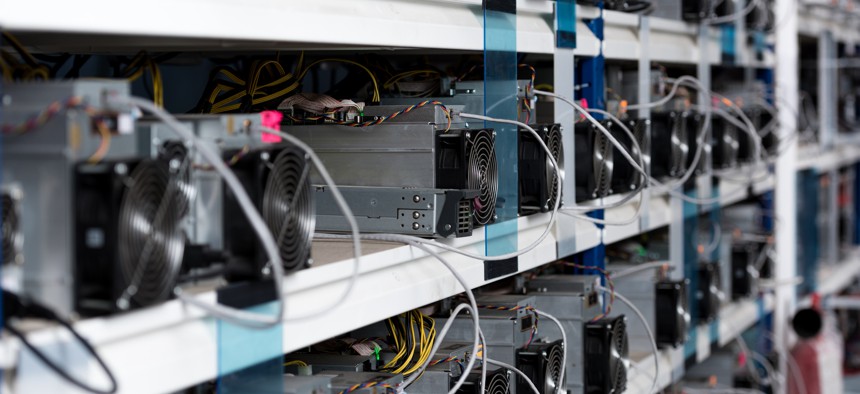Bitcoin-mining helps bring business to the city's ‘front porch’

LightFieldStudios/Getty Images
As the first U.S. city to mine the cryptocurrency, Fort Worth leaders say the venture will attract more visitors and businesses.
Fort Worth, Texas, turned heads earlier this year when it became the first city in the United States to mine bitcoin, an effort that has earned the city more than $1,000 since August.
The six-month mining pilot generated $1,019.31 for the city, after electricity costs, and initially ran on three bitcoin mining computers donated by the Texas Blockchain Center and housed at the city’s data center. The city quickly exchanged those three machines for a single model, which city officials said at the time was more energy efficient.
Carlo Capua, the city’s chief of strategy and innovation, said during the recent GovExec SLG Tech Summit that given the data center already had ventilation, and that the mining machines run by themselves, there was very little cost for the initiative beyond electricity. He estimated that the bitcoin mining machines used “about the same amount of electricity as a household vacuum cleaner.”
Bitcoin miners continuously compete against each other to validate transactions based on complex mathematical algorithms, with the first one to do so earning itself a bitcoin that enters circulation on the cryptocurrency’s blockchain ledger.
Fort Worth’s effort began as part of its Bitcoin Fort Worth initiative, pioneered by Mayor Mattie Parker, who Capua said has a “little different perspective on crypto” due to her youth.
Capua said the mining effort represents far more than an economic opportunity for Fort Worth. It can also attract people and businesses “to the front porch of our city,” as it shows how innovative and forward-thinking Fort Worth is.
“There's something inherently powerful about being the first to do something,” Capua said. “To say you were the first person or first city to do anything in the country, is really, really powerful.”
Bitcoin has experienced some turbulence in its value in recent months, including this week’s collapse of the FTX cryptocurrency exchange. The cryptocurrency’s value dropped more than 15% as FTX entered choppy waters and looked set for a takeover.
Amid those challenges and a reluctance from some other city leaders to buy into the program, Capua was keen to emphasize that Fort Worth is not investing in bitcoin given that it is seen in some quarters as a “speculative asset.” Instead, he presented the mining pilot as an effort to learn more.
“It was an opportunity for us to learn hands-on the future of digital assets, and the implications and opportunities and [discover] what we really wanted to do, and to do it at zero cost,” he said.
Capua predicted the initiative will be a “big deal” in the city’s history, adding that he hopes it encourages more businesses to invest in Fort Worth. “It makes sense that a high-tech company would want to do business in a tech-friendly city,” he said.
NEXT STORY: E-tongue tastes water for contaminants






